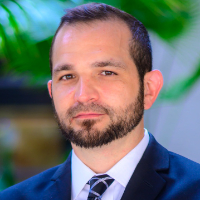Beaufort County, SC RICO Act Lawyers
Sponsored Law Firm
-
 x
x

Click For More Info:
-
The Law Offices of Richard L. Cooper, P.A.
848 Brickell Avenue Suite 800 Miami, FL 33131» view mapDWI/DUI, Drug Trafficking, Felony Nationally Ranked Top 40 Under 40
With Richard L. Cooper you can expect a trusted confidant who will work diligently to fully understand your case and determine a road map to help you regain control of your life.
800-756-2781
Not enough matches for Beaufort RICO Act lawyer.
Below are all Beaufort lawyers.
Bennett J. Schiller
✓ VERIFIEDBecoming a trial lawyer was inevitable for Bennett J. Schiller, III. He was born in Savannah, Georgia in 1968 the son of Bennett and Marie Schiller. N... (more)
Zach Steven Naert
✓ VERIFIEDZachary Steven Naert was born in St. Louis, Missouri, on February 8, 1984. His father was in the Navy, and shortly after being born they were transfe... (more)
FREE CONSULTATION
CONTACTW. Brantley Harvey
FREE CONSULTATION
CONTACTJoseph L. O'Brien
FREE CONSULTATION
CONTACTGerald Healy
FREE CONSULTATION
CONTACTDustin Lee
J. Olin “Lin” McDougall II
FREE CONSULTATION
CONTACTMichael J. Howell
FREE CONSULTATION
CONTACTFREE CONSULTATION
CONTACT
 Richard L. Cooper Miami, FL
Richard L. Cooper Miami, FL AboutMiami Attorney at Law
AboutMiami Attorney at Law ServicesCriminal Defense
ServicesCriminal Defense



